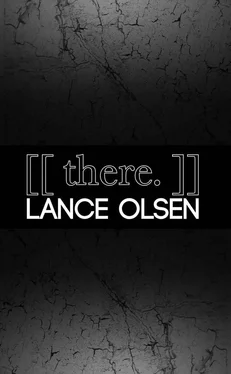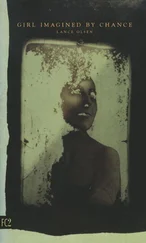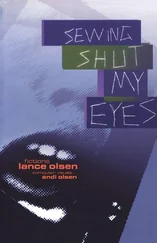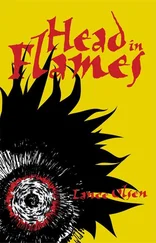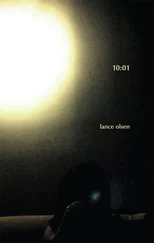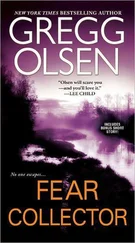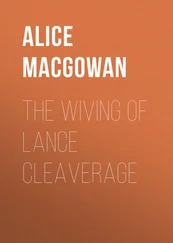Throughout the event the Koreans behind us remained very quiet.
:::: We are all cultural informants.
:::: What won’t leave me alone about Ben Marcus’s definition of rhetoric is how it is and isn’t one. How it is indicative of the backbroke sentences that comprise his bafflement before not-knowing, about conventional mimesis as a kind of somnolence, about the very problematics of representation. How this sentence, that is, like them all in The Age of Wire and String , is a post-genre edifice that exists in some smudge between or beyond theory and fiction, poetry and prose, meaning and the other thing, by means of what we might call paragrammatic illegibility that gives rise to an abstract language that almost means, but doesn’t, quite (why do alarm and harm rhyme so loudly, so close together? in what sense can language make someone receptive to a pain she or he can’t imagine? shouldn’t our listeners be our readers ? and by our the narrator — who is, come to think of it, who, exactly? — means. . what, exactly?), a language whose signifiers point to non-existent signifieds, unhinge the process of reading by fashioning something approaching asemic wordage that looks and sounds like it should make perfect sense. . until, that is, you pay any sort of attention to it.
:::: Ten days ago cranes started showing up around Wannsee — on the docks at the marina, waiting for fishermen to motor in with their catches, at the edge of the woods. They had returned from France and Spain on their way to breeding grounds in Eastern Europe and Scandinavia. But two days ago they started disappearing again. The news says they’ve called off their migration in response to the extended snow and cold, have begun backtracking to warmer temperatures.
This morning Spiegel Online reports a flock of ill-fated ones became disoriented in central Germany’s thick fog and icy wind and began slamming into buildings and cars. In November 2011 more than 55 cranes and 300 geese landed on a highway in Brandenburg, where they were run over by cars.
:::: Here is Alexander Pope: Blessed is he who expects nothing, for he shall never be disappointed.
:::: And Don DeLillo: We seem to believe it possible to ward off death by following rules of good grooming.
:::: How Marcus’s sentence exiles readers from knowledge, forces them to imagine in slow motion. It bears family resemblance to one by Barthelme. It is fifth cousin to one by Burroughs. It performs what it has been about all along: how, in the end, it is what it is talking about, as all rhetoric should be, all art — how it causes life to be less believable, which is to say more conscious of itself as cultural construction, as experience mediated by language, a kind of fiction making itself strange in order to startle said reader into waking, again and again, in order to feel, which is to say to think, which is to say to feel in exciting ways that challenge all he or she takes for granted, again and again, about language and experience and therefore about narrativity.
:::: An email from my friend Rochelle Ratner, her lung cancer having metastasized to her brain: They have me on this experimental chemo pill, long-term, which is supposed to reduce the risk of recurrence greatly. The problem is it made my face break out in this horrendous acne-like rash. So I’ve cut back to half a dose and begun taking antibiotics as well as using all sorts of creams. My dermatologist’s assistant spent nearly an hour with me showing me how to use makeup to cover the rash. I’ve never used makeup in my life, and really hadn’t planned on starting now, but it does seem to make a difference.
:::: According to a recent study, 88.2 % of those who live in what was once East Germany consider themselves atheists. Almost half of all Germans do. This in a country which ranks 11th behind the most heathen in the world, Sweden, where upwards of 85 % weigh in as non-believers.
In the Puritan-souled U.S., only 3-to-9% of the population identifies itself as bored by belief in boogiemen and tooth fairies.
:::: A cage went in search of a bird.
Imagined Kafka.
:::: Click.
:::: Raymond Federman, Larry McCaffery, Andi and I racing a RAV through narrower and narrower washes in the desert near Borrego Springs where Larry and his wife Sinda live.
:::: Click.
:::: We weren’t meant to be here, the literary critic Brian McHale pointed out several years earlier, standing beside me on a ridge overlooking those vast, arid, reddish-brown California badlands that are just like Mars, only with oxygen.
:::: Click.
:::: The four of us had stopped to pick up sandwiches at the deli in town before heading out. Larry drove with a tumbler full of vodka over ice between his legs and Sonic Youth on his RAV’s crapulent sound system. (Or maybe it was Bruce Springsteen. I remember both as the case.) After a while we couldn’t drive any farther, so got out and walked. I think I recall Andi and me lugging a cooler between us (and I think I recall Andi and me not lugging a cooler between us). We ended up in a natural amphitheater, a large bowl cut from the loose dry soil, slick clay, deep sand, rock. Its walls sloped up 100 feet above us. From somewhere Federman produced the manuscript he’d been working on (I want to say Return to Manure ) and started reading aloud. McCaffery extracted his video camera from his daypack (although I don’t actually recollect him wearing one, although he must have been) and commenced filming while backing up a path that snaked toward the top of the wash.
And then Andi and I were leaning back against a big boulder across from Federman.
Listening.
The sun fading.
Federman’s voice echoing around us.
McCaffery becoming a thumb-sized stirring above us.
:::: I just memoried on myself a little.
:::: Angela Merkel, Germany’s first female chancellor, is daughter of a Lutheran minister and a teacher of English and Latin. She received a doctorate in quantum chemistry, the same field her second husband, Professor Joachim Sauer, teaches. Angela doesn’t like children or dogs.
In the context of German politics and media, it is inconceivable anyone cares about her religious beliefs.
:::: A hefty, baggily dressed man in his sixties, who in another life might have been a professor, but who in this one had misplaced himself, enters the train to Potsdamer Platz.
He’s talking loudly to no one. After a while he approaches a young woman reading a book whose title I can’t make out. From the fall of paragraphs on the page, I imagine it’s a novel. There is an empty seat next to her. The man asks her to move so he can sit down. His legs, he says, are killing him. His capacity requires two seats. She looks up, indicates the one next to her, looks down.
Die sind Kindersitze, he says. Those are children’s seats. Now he’s angry. The young woman looks up, says leider, sorry about that, looks down.
She reads on, expressionless, unruffled in a way I could never aspire to be, as the large lost man thumps up and down the car, explicating something repeatedly, for emphasis, to his invisible associates.
:::: When the Wall became a museum, large numbers of East Berliners moved west, leaving hundreds of empty apartments behind them. A year, and about 200 buildings had become the center of a squatter’s movement in Friedrichshain, Prenzlauer Berg, and Kreuzberg. By 2005 most of those buildings had been forcefully cleared by police and imposed rents had risen by more than 20 % to make way for gentrification creep. Over the last five years, real estate prices have amplified another 32 %.
Sexy, Berliners maintain, but no longer poor.
:::: All knowledge is a border problematic: what’s kept in, kept out, by whom, why?
Читать дальше
